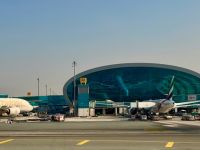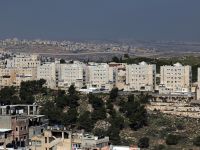A six-week old strike in which hundreds of Israeli workers in the civil administration in the West Bank and Gaza took off work to demand improved conditions, left the Palestinians even more conscious of their economic dependence on Israel. The Palestinians retaliated to the strike by blocking Israeli goods from entering the West Bank and Gaza -- hurting both economies.
"The Palestinian Authority decided to close all passages between Israel and Gaza to protest the Israeli policy of installing obstacles to export from Gaza to the West Bank and abroad," announced Nasser Saraj, Director General of the Palestinian Industry and Commerce Ministry. The Palestinian Authority is threatening further measures that it says could harm the Israeli economy if Israel continues to reject joint administrative coordination at borders and passages.
Hardly a new issue in the sphere of Palestinian economics, is that Palestinian businessmen and economists in Gaza want Palestinians to become more economically independent from Israel.
Palestinians represent a vital market for Israeli products. Excluding diamonds, the Palestinians (save the US) constitute Israel's second largest export market overall -- accounting for $1.6 billion in sales in 1997. This figure represents nearly 15 percent of Israel's total non-diamond exports, and is well above Israel's exports to the UK ($1.2 billion), Germany ($900 million), or Japan ($450 million), markets traditionally seen as key to Israel's growth and prosperity. On the flip-side, Palestinians export almost 80 percent of their goods to Israel.
"Dependence on Israel must end," remarked Saraj. Other economic pundits such as Economics Analyst Samir Huleileh contend that the Palestinians do maintain a degree of economic independence from Israel, yet agree that it is not enough.
Palestinian experts want the Palestinian economy to be self-sufficient, using its own electricity, flour, building materials and communications systems. The Palestinian Authority (PA) is said to be planning means to satiate Palestinian consumption needs internally.
The small-scale nature of many Palestinian factories and plants, makes clear the tendency to rely on large-scale Israeli production. In the Industrial sector, nearly 90 percent of all typical Palestinian companies employ seven or fewer workers. The lack of raw materials is also a challenge for the industrial infrastructure, which aims to meet the needs of the rapidly growing population. Other economic red-flags for Palestinians: One-fifth of Palestinians in the West Bank and Gaza live in poverty, struggling to survive on less than eight shekels a day. Further, the unemployment rate among Palestinians stands at approximately 30 percent, and has remained high for years.
But many Palestinian businessmen are beginning to practice what they preach. Mahmoud Al Farra, Chairman of the Palestinian Contractors Company in Gaza, a major private Palestinian corporation, signed his first contract with the Palestinian Authority to build Gaza International Airport. His company has also constructed a flour-mill that produces 30 tons of flour per day.
"The amount of flour the windmill is producing now is not enough, therefore the Gaza Strip still buys flour from Israel," Al Farra commented. Plans are underway to boost the production capacity, thereby reducing the dependence on Israeli-produced flour.
Al Farra conveyed that, "As long as the Gaza Strip economy is joined to the Israeli economy, the Palestinians will never be independent."
Construction of the $10-million (from the EU) Gaza Electricity power station is scheduled to be completed in 2002. Presently, the PA purchases its electricity from Israel. Engineer Ahmed Sweelem, a member of the team working on the station's construction, relayed that the station would advance the Palestinian economic independence.
Institution-building and alleviating unemployment are two of the predominant challenges facing the Palestinian economy according to many experts, and should be directed toward expanding the capacity of the private productive sectors. Stuart Eizenstat, the State Department's senior official for global economic issues, commented, "The dire state of the Palestinian economy is not by any means the sole responsibility of Israel." He relayed that the Palestinians can also aid their cause by implementing more "investor-friendly" policies, adopting more transparent rules and procedures.
- albawaba.com
© 2000 Mena Report (www.menareport.com)







